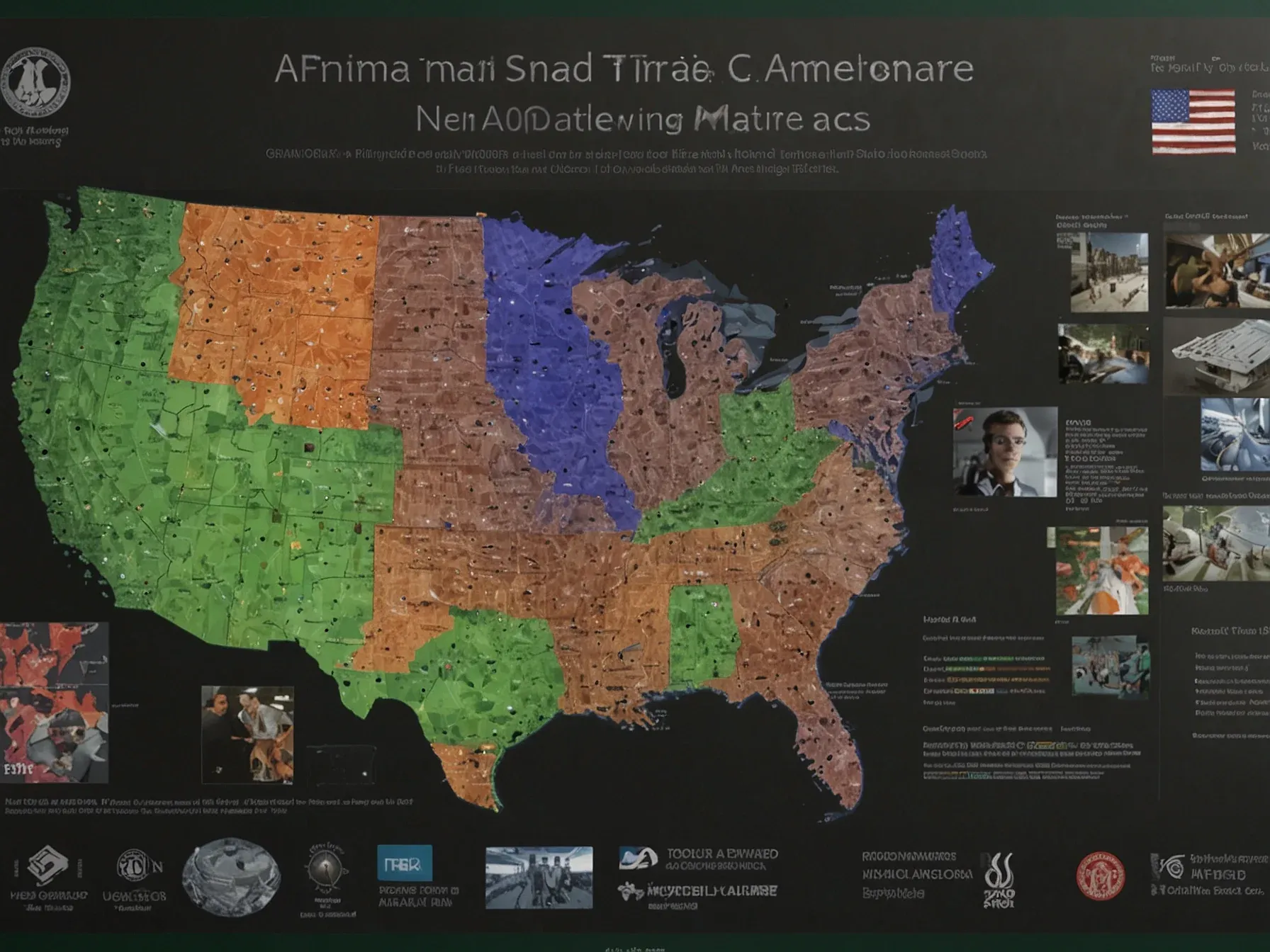
Editorial illustration for Scalise Weighs NDAA Provision to Halt State-Level AI Regulation Efforts
Scalise Seeks Federal Block on State AI Regulation Moves
Republicans eye AI moratorium, Scalise mulls NDAA language to block state rules
The AI regulatory landscape is heating up in Washington, with Republican leadership exploring aggressive federal intervention to prevent a patchwork of state-level restrictions. House Majority Leader Steve Scalise is now eyeing a potentially powerful legislative maneuver that could dramatically reshape how artificial intelligence gets regulated across the United States.
By considering language for the National Defense Authorization Act that would effectively block state-level AI rules, Scalise is signaling a coordinated GOP approach to technology governance. The move suggests Republicans want a unified, centralized framework for AI oversight - potentially preempting a complex state-by-state regulatory environment.
The timing is notable. With AI development accelerating and concerns mounting about potential risks, congressional leaders are scrambling to establish clear guardrails. Scalise's potential NDAA provision represents a bold, proactive strategy to control the emerging regulatory conversation.
House Majority Leader Steve Scalise (R-LA) told Punchbowl News he's considering adding language to the National Defense Authorization Act (NDAA) effectively banning state AI regulations. Later on Tuesday, President Donald Trump posted on Truth Social urging Congress to standardize AI regulations. "We MUST have one Federal Standard instead of a patchwork of 50 State Regulatory Regimes," he wrote.
"If we don't, then China will easily catch us in the AI race. Put it in the NDAA, or pass a separate Bill, and nobody will ever be able to compete with America." Tacking amendments onto the NDAA, which lawmakers consider a must-pass bill, is a common strategy to get legislation across the finish line at the end of the year. It's not totally clear what the new language would look like considering 99 out of 100 senators ultimately turned against the version of a five-year moratorium on state AI laws that was put to a vote this summer.
When the issue came up earlier this year, many lawmakers expressed concern about the initial 10-year term proposed for the moratorium, and the potential that language could be so broad as to cover a host of other tech regulations, including kids' online safety laws. Both red and blue states have adopted AI-related laws that could be effectively nullified if Congress were to vote to preempt or pause them. Proponents of the moratorium, including tech industry associations like NetChoice, argued that a complicated patchwork of state regulations for an early-stage industry like AI could hamper innovation and threaten US competitiveness with China.
More details on the NDAA's language are expected before the Thanksgiving holiday, with a vote on track for December, according to Politico.
The push for federal AI regulation is gaining momentum, with Republicans exploring unconventional legislative strategies. Scalise's potential NDAA provision signals a serious attempt to create a unified national approach to artificial intelligence governance.
Trump's social media intervention adds political weight to the conversation. His call for a single federal standard reflects concerns about fragmented state-level regulations potentially hindering technological competitiveness.
The proposed strategy, embedding AI regulatory language in the National Defense Authorization Act, represents an unusual legislative maneuver. It suggests Republicans view AI standardization as a critical national priority, potentially linking technological development to defense interests.
While the details remain unclear, the effort hints at a broader political consensus. Lawmakers appear increasingly focused on creating a cohesive framework that prevents a complex, state-by-state regulatory landscape.
The ultimate goal seems twofold: simplify AI governance and maintain U.S. technological leadership. Whether this approach will successfully navigate congressional approval remains to be seen.
Further Reading
- What the NDAA Means for AI and Cybersecurity - WilmerHale
- The Preemption Fight Goes Far Beyond AI. States Must Persist - Tech Policy Press
Common Questions Answered
How might Steve Scalise use the National Defense Authorization Act to impact AI regulation?
Scalise is considering adding language to the NDAA that would effectively ban state-level AI regulations, creating a unified federal approach to AI governance. This legislative strategy aims to prevent a fragmented regulatory landscape across different states, potentially streamlining AI policy at the national level.
What did Donald Trump suggest about AI regulation in his recent social media post?
Trump urged Congress to establish a single federal standard for AI regulations instead of having different rules in each state. He argued that without a unified approach, the United States risks falling behind China in the AI technological race.
Why are Republican leaders pushing for federal intervention in AI regulation?
Republican leadership is concerned about the potential challenges created by a patchwork of state-level AI restrictions that could impede technological development and competitiveness. By seeking a federal standard, they aim to create a more consistent and strategic approach to AI governance across the United States.




